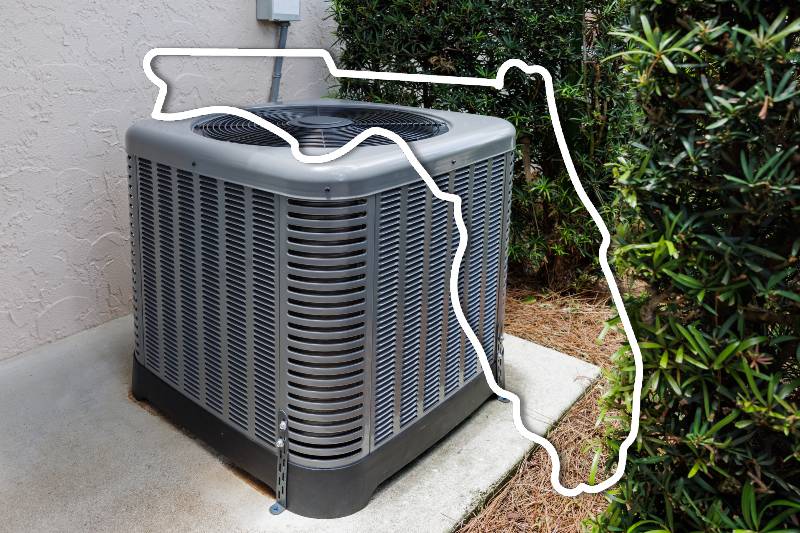Here’s a list of frequently used mortgage terms and their definitions to help you better understand your loan:
- Adjustable-Rate Mortgage (ARM): A mortgage with an interest rate that can change periodically, typically after an initial fixed-rate period. The rate adjustments are based on a specified index and can result in fluctuating monthly payments.
- Amortization: The process of gradually paying off a mortgage loan through regular monthly payments, which consist of both principal and interest.
- Annual Percentage Rate (APR): The total cost of borrowing, expressed as a yearly interest rate, which includes not only the interest rate but also other loan fees and costs.
- Appraisal: An evaluation of a property’s value by a licensed appraiser to determine its market worth. Lenders use appraisals to assess the property’s value for lending purposes.
- Closing Costs: The fees and expenses associated with the mortgage transaction, including lender fees, title insurance, escrow fees, and prepaid items like property taxes and homeowner’s insurance.
- Closing Disclosure: A document provided to the borrower before closing that outlines the final terms and costs of the mortgage loan.
- Collateral: The property that is used as security for a mortgage loan. If the borrower defaults on the loan, the lender can seize and sell the collateral to recover their funds.
- Credit Score: A numerical representation of a borrower’s creditworthiness, typically based on credit history and financial behavior. Lenders use credit scores to assess the risk of lending to a borrower.
- Deed: A legal document that transfers ownership of a property from one party to another. It is recorded in public records to establish property ownership.
- Down Payment: The initial payment made by the homebuyer when purchasing a property. It is typically a percentage of the home’s purchase price and can affect loan terms and interest rates.
- Equity: The value of ownership or interest in a property after subtracting any outstanding mortgage debt and other liens. Home equity represents the homeowner’s stake in the property.
- Escrow: An account where the lender holds funds for property taxes and insurance, paid by the borrower as part of the monthly mortgage payment. The lender then pays these bills when they are due.
- Escrow Account: A special account held by the lender to collect and manage payments for property taxes and insurance on behalf of the borrower.
- Fannie Mae (FNMA): The Federal National Mortgage Association is a government-sponsored enterprise (GSE) that purchases and guarantees mortgages, helping to provide liquidity to the housing market.
- Fixed-Rate Mortgage: A mortgage with a stable interest rate that does not change over the life of the loan, providing predictable monthly payments.
- Forbearance: An agreement between a borrower and lender to temporarily reduce or suspend mortgage payments due to financial hardship. It does not forgive the missed payments but provides temporary relief.
- Freddie Mac (FHLMC): The Federal Home Loan Mortgage Corporation is another GSE that purchases, guarantees, and securitizes mortgages to support the mortgage market.
- Gross Monthly Income: The total income earned by a borrower before taxes and deductions. Lenders use this figure to calculate the borrower’s debt-to-income ratio.
- Home Equity: The difference between the current market value of the property and the outstanding mortgage balance. It represents the homeowner’s ownership stake in the property.
- Home Inspection: A thorough examination of a property’s condition, typically performed by a licensed home inspector, to identify any issues or potential problems.
- Home Inspection Report: A detailed report provided by a home inspector after examining a property. It outlines the condition of various components of the property and any issues found.
- Homeowners Association (HOA): An organization typically established within a planned community or condominium complex that manages and enforces rules and regulations for the property and its residents.
- Interest Rate: The annual percentage of the loan amount that the lender charges the borrower for borrowing the money. It affects the cost of the loan and monthly payments.
- Interest-Only Mortgage: A mortgage in which the borrower pays only the interest for a specified initial period, typically followed by higher payments that include both principal and interest.
- Joint Tenancy: A form of property ownership where two or more individuals have equal rights to the property. If one owner passes away, their share typically goes to the surviving owner(s).
- Loan-to-Value Ratio (LTV): The ratio of the mortgage loan amount to the appraised value or purchase price of the property. A higher LTV may result in a higher interest rate or the need for private mortgage insurance (PMI).
- Loan Estimate: A standardized form provided by the lender to the borrower that outlines key loan terms, estimated closing costs, and other important details of the mortgage application.
- Loan Servicer: The company responsible for managing the day-to-day tasks of a mortgage loan, including collecting payments, managing escrow accounts, and responding to borrower inquiries.
- Mortgage Broker: A professional who connects borrowers with lenders and helps borrowers find mortgage products that suit their needs. Mortgage brokers often work with multiple lenders.
- Mortgage Brokerage: A business or individual that connects borrowers with lenders and facilitates the mortgage application process, often working with various lenders to find the best loan terms for the borrower.
- Mortgage Insurance: Insurance that protects the lender in case the borrower defaults on the loan. PMI is often required for loans with a high LTV ratio.
- Negative Amortization: A situation in which a borrower’s monthly payments are not sufficient to cover the interest due on the loan, leading to an increase in the loan balance over time.
- Origination Date: The date on which the mortgage loan is created and the borrower agrees to the terms and conditions of the loan.
- Origination Fee: A fee charged by the lender to cover the costs of processing and underwriting the mortgage loan.
- Points (Discount Points): Fees paid by the borrower to the lender at closing in exchange for a lower interest rate. Each point typically costs 1% of the loan amount.
- Prepayment Penalty: A fee charged by some lenders if the borrower pays off the mortgage loan early, usually within a specified time frame.
- Principal: The original loan amount borrowed, which is gradually paid down with each mortgage payment, reducing the loan balance.
- Principal Balance: The remaining amount of the loan that has not yet been repaid, excluding interest and other charges.
- Private Mortgage Insurance (PMI): Insurance required by the lender for borrowers who make a down payment of less than 20% to protect the lender in case of default.
- Qualifying Ratios: The borrower’s debt-to-income ratios used by lenders to assess whether a borrower can afford the mortgage. Common ratios include the front-end (housing expenses) and back-end (total debt) ratios.
- Rate Lock: An agreement between the borrower and the lender that locks in the interest rate for a specified period, typically until the loan closes.
- Refinancing: The process of obtaining a new mortgage to replace an existing one, often to secure a lower interest rate, reduce monthly payments, or access home equity.
- Second Mortgage: A mortgage loan that is subordinate to the first mortgage, often used for purposes like home improvement or debt consolidation.
- Subprime Mortgage: A type of mortgage loan offered to borrowers with lower credit scores or higher risk factors, often accompanied by higher interest rates and fees.
- Title Insurance: Insurance that protects the homeowner and lender against disputes or legal claims related to the property’s ownership or title.
- Title Search: A thorough examination of public records to ensure that the seller has clear and marketable title to the property, free of any liens or legal issues.
- Underwater Mortgage: A situation in which the homeowner owes more on the mortgage loan than the current market value of the property.
- Underwriting: The process by which a lender evaluates a borrower’s creditworthiness and the risk associated with a mortgage application to determine if the loan should be approved.
- VA Loan: A mortgage loan backed by the U.S. Department of Veterans Affairs, available to eligible veterans, active-duty service members, and certain members of the National Guard and Reserves.
- Verification of Employment (VOE): A process in which a lender confirms a borrower’s current employment status and income as part of the mortgage application process.
- Walkthrough: A final inspection of the property by the buyer before closing to ensure that the property is in the agreed-upon condition and that any negotiated repairs have been completed.
- Wraparound Mortgage: A type of secondary financing in which the borrower combines the existing mortgage with a new, higher-interest loan, creating a single, larger loan with a single monthly payment.
- Yield Spread Premium (YSP): A fee paid by a lender to a mortgage broker for securing a loan with an interest rate higher than the lender’s par rate. This can affect the borrower’s interest rate and closing costs.
Understanding these mortgage terms can help you navigate the homebuying process and make informed decisions about your mortgage loan.













0 Comments